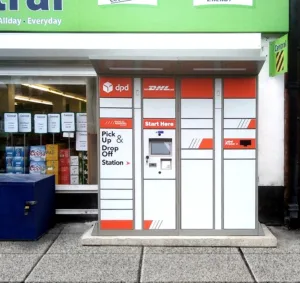By Paige O’Neill, CMO, Sitecore
Everyone I talk to these days—industry analysts, fellow CMOs, customers, and partners—has empathy on their minds. On a personal level, it makes sense: we’re in the middle of a pandemic. But what about on a professional level? What role does empathy play in modern marketing?
Let’s start with the basics. The dictionary defines empathy as “identifying with the feelings, thoughts, or attitudes of another.” It’s about working to genuinely understand what someone else is going through, and then responding with compassion and a helping hand.
Is that something a company can do? Can a brand be empathetic?
My answer is an unequivocal “yes.” In fact, I would go even further and say that in order to move forward into the next realm of customer experience, your brand must be empathetic. You must work to truly understand your customers long before you try to market or sell to them. You need to focus on the customer experience and prove that maintaining a relationship with you is worthwhile.
Empathy is integral to the customer experience
The good news is that most companies were already moving in this direction long before the pandemic hit. For example, last year, IDC’s Digital Transformation Executive Sentiment Survey found that executives ranked the customer experience as the top business function that needed to be transformed. Indeed, IDC concluded that engagement between customer and company was a key reason companies planned to spend $1.4T on digital transformation in 2020.
The difference now is that all of the efforts around the customer experience have become underscored and hyper-charged. Companies are realizing that they absolutely must use all things digital to engage effectively with their customers. They also know that they have to learn whatever they can from those customer interactions and then use that information to enhance the experience even more. It’s that kind of learning and iteration that creates understanding. And over time, it’s that understanding that demonstrates empathy.
Making the customer experience personal
As an example of how it’s done, take a look at Macmillan Cancer Support, a charity that provides physical, financial, and emotional support to people impacted by cancer in the UK. Macmillan’s mission is to offer support across a broad range of people, including those who are newly diagnosed, those who are going through treatment, survivors, caretakers, health and social care professionals. Clearly, getting the right content to the right person at the right time is crucial.
This spring, Macmillan was already well into a three-year digital transformation. So, when the pandemic struck, the organization was able to use our technology to quickly create a new Coronavirus hub. This hub offers users online support and guidance, as well as personalized guide modules that provide curated and more tailored Coronavirus and cancer information. That’s how to connect in an empathetic way. And Macmillan says user engagement levels are up, based on click-through and bounce rates, as well as user feedback.
Another Sitecore customer, Johns Hopkins Medicine, was also able to show empathy at scale and immediately respond to the pandemic by providing accurate coronavirus information in a rapidly changing environment. They used content to power a COVID-19 self-checker, built infographics to inform, and ultimately grew visits to coronavirus content by more than 38 million in just seven months.
Put empathy at the center of your marketing strategy
With organizations related to health care, there’s an expectation of empathy. But are other B2C and B2B brands going to follow suit—and will they sustain the empathy movement even after the pandemic is over?
I suspect they will. Not only are companies recognizing that they need to stand for a higher purpose than just selling, but today’s consumers have grown savvier and more skeptical than ever before. Expectations everywhere are evolving at a rapid rate, and no one seems to have the patience for false promises. Remember, empathy isn’t something that can be created or faked. If you want to succeed in today’s marketplace, you need to show genuine understanding and compassion—long term and at scale.
Empathy is now at the center of modern marketing. Your customers expect you be there for them, knowing what they need and when they need it. It’s a straightforward premise, although that doesn’t mean it will necessarily be easy. Empathy at scale requires vision, commitment, and content. But the brands that are making it happen know that it works. They’re elevating brand awareness, increasing customer loyalty, and ultimately, boosting the bottom line.












